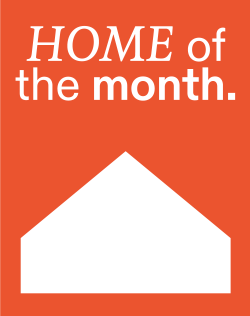Sundance Studio founder Emma Shepherd’s love of weaving has taken her around the world.
After studying textile design at RMIT in 2018, she did a residency in Iceland, interned with weavers in Belgium, the USA, and collected textiles over in Japan and India.
Then in 2020, she launched her own business Sundance Studio. Doing so gave her a platform to continue exploring different methods of the handmade art form, while also selling her textural creations direct-to-consumer.
Working from her family’s farm in Flinders, she carefully creates intricate works of art, functional clothing and decorative homewares — with custom pieces that have appeared in interior design projects and exhibitions as far as Paris! Below, she shares how she balances her creative spirit with all the demands that come with running a business.
What initially drew you to weaving?
I immediately loved the tactility of the yarn, and the planning and repetition involved in making a piece. The rhythm and motion of all of the steps involved, as well as the weaving itself. The possibilities feel really expansive.
How would you describe your artistic style?
Textural, understated, quiet, reflective, ordered.
How long does it take you to complete a piece?
It really varies. There are many hours planning and preparing, often this takes far longer than the weaving itself. But there are some hours that are set, like dressing the loom which usually takes between 6-10 hours. Then I can weave multiple pieces from one warp. It can take about one hour per metre for functional, repetitive works or far far longer depending on the complexity of the piece. I’m still in an exploratory part of my practice, so there is a lot of time spent sampling new ideas, developing ways to finish works and finding unusual materials.
What are some of the highlights from your career so far?
My solo show at my local regional gallery, Mornington Peninsula Regional Gallery, and receiving a grant to weave the hems and valance for the Oberon Theatre in NSW.
What do you love most about weaving?
It’s a deeply satisfying craft. So ordinary, but also so extraordinary. There is so much variety with the projects I am able to work on. It’s also bought so much meaning in connecting me with the local creative community and I really value these relationships.
Why did you choose Squarespace as your website building platform?
It was accessible — pricing wise as well as being user friendly — and I’d heard it had the best templates. I needed something easy, so I could focus all my attention on my craft.
I’ve tried to develop my website to be a really beautiful representation of my work. It operates as a portfolio but also as a straightforward way to connect with others and sell my work. It shows glimpses of me weaving and I can expand on what I do in a thoughtful, more in-depth way. Social media can be so fleeting, so it’s great to have a platform to build on and grow.
What Squarespace features have you found most valuable?
The ease of uploading pieces, and adjusting the design of pages as my business evolved, has been incredibly useful. I know the costs of getting developers to make even small changes are high, so it’s been a big help learning to do it myself. And I wanted it to be at a really high standard, which I think Squarespace provides.
What advice would you give to someone who’s keen to pursue an artistic career?
Persevere! I didn’t realise how hard emotionally and spiritually it was to make work for years, questioning if it was the right thing to be doing. I’m sure others have more conviction than me, but quietly continuing to develop work and get better was instrumental to reaching where I am now. Also, do things before you feel ready: build the website or book in for an exhibition. It all pushes you forward.
Squarespace provides entrepreneurs and small business owners with the tools they need to bring their creative ideas to life, online. Using their all-in-one platform, you can claim a domain, build a website, sell online, and market your brand.
Use code ‘thedesignfiles’ for 10% off an annual subscription — learn more here.






























































